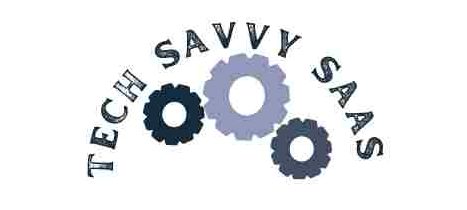In the realm of modern education, student-led conferences have emerged as a powerful tool for fostering student agency and enhancing the learning experience. These conferences represent a paradigm shift from traditional parent-teacher conferences, placing students at the forefront of their educational journey. Through student-led conferences, learners take ownership of their progress, showcasing their achievements, reflecting on their growth, and setting goals for the future.

Student-led Conferences
Student-led conferences involve students taking an active role in presenting their academic achievements and progress to their parents or guardians, with the guidance of their teachers. Unlike traditional parent-teacher conferences, where educators dominate the conversation, student-led conferences empower learners to articulate their strengths, areas for improvement, and goals for further growth. This approach not only promotes student voice and agency but also fosters a sense of accountability and responsibility for one’s own learning journey.
In today’s digital age, technology plays an integral role in transforming traditional educational practices, and student-led conferences are no exception. Online platforms offer a dynamic and interactive medium for facilitating these conferences, providing students, parents, and teachers with unprecedented opportunities for collaboration, communication, and reflection. Through the integration of technology, student-led conferences can transcend the constraints of time and space, enabling seamless participation and engagement from all stakeholders.
The success of student-led conferences hinges on the selection of the right online platform. Effective platforms not only streamline the conference process but also enhance the overall experience for students, parents, and teachers alike. From user-friendly interfaces to robust features for tracking progress and setting goals, the platform serves as the backbone of the conference experience. Therefore, it is crucial for educators to carefully evaluate and choose platforms that align with their goals and priorities for student-led conferences.
Understanding student-led conferences
Student-led conferences represent a fundamental shift in the traditional dynamics of parent-teacher interactions, placing students squarely at the center of the conversation. In these conferences, learners take on the role of presenters, guiding discussions about their academic progress, achievements, and areas for improvement. This format not only empowers students but also fosters a sense of ownership and accountability for their learning journey.
What are student-led conferences?
Student-led conferences are structured meetings where students take an active role in showcasing their academic achievements and progress to their parents or guardians, often with the guidance of their teachers. Unlike traditional parent-teacher conferences, where educators primarily drive the conversation, student-led conferences provide learners with a platform to articulate their learning experiences, goals, and challenges. By assuming the role of presenters, students develop essential communication skills and confidence in articulating their academic journey.
Benefits for Students
The adoption of student-led conferences yields a myriad of benefits for learners, transcending the realm of academic achievement to nurture holistic growth and development. One of the primary advantages lies in the cultivation of critical skills such as communication, self-reflection, and goal-setting. Through the process of preparing for and participating in student-led conferences, students learn to articulate their thoughts, reflect on their strengths and areas for improvement, and set meaningful goals for their academic and personal growth.
Moreover, student-led conferences foster a sense of ownership and agency over one’s learning journey. By actively engaging in the conference process, students become active participants rather than passive recipients of feedback. This heightened sense of ownership not only motivates students to take responsibility for their academic progress but also instills a lifelong commitment to continuous learning and self-improvement.
Involvement of Parents and Teachers
While student-led conferences primarily revolve around student participation, the involvement of parents and teachers is equally crucial in supporting student growth and development. Parents play a vital role as active listeners and supporters, providing encouragement, feedback, and guidance to their children throughout the conference process. By attending student-led conferences, parents gain valuable insights into their child’s academic progress, strengths, and areas for growth, fostering a collaborative partnership between home and school.
Teachers, on the other hand, serve as facilitators and mentors, guiding students through the conference preparation process and providing constructive feedback. By actively engaging with students during student-led conferences, teachers gain deeper insights into their students’ learning styles, preferences, and areas of need, enabling them to tailor their instruction and support to meet individual student needs effectively.
Exploring online platforms
In the digital age, online platforms have revolutionized the way student-led conferences are conducted, offering a myriad of tools and features to enhance the conference experience for students, parents, and teachers alike. From platforms focused on student reflection and goal-setting to those offering interactive tools for tracking progress, the options are endless. Let’s delve into two distinct platforms designed to empower students in their student-led conference journey.
Platform A: Customizable Templates and Prompts
Platform A is a comprehensive online tool designed to facilitate student reflection and goal-setting in preparation for student-led conferences. At its core, Platform A offers a range of customizable templates and prompts that guide students through the process of reflecting on their academic achievements, strengths, challenges, and goals. From self-assessment surveys to reflection journals, Platform A provides students with structured opportunities to articulate their learning experiences and set meaningful goals for future growth.
One of the key features of Platform A is its flexibility and adaptability to diverse learning environments and student needs. Educators can customize the templates and prompts to align with specific curriculum objectives, learning goals, and grade levels, ensuring that student-led conferences are tailored to meet the unique needs of each learner. Moreover, Platform A offers built-in analytics and reporting tools that enable educators to track student progress, identify trends, and provide targeted support as needed.
Platform B: Interactive Progress Tracking and Personalized Learning Goals
Platform B takes student-led conferences to the next level with its interactive tools for tracking progress and setting personalized learning goals. Unlike traditional paper-based methods, Platform B offers a dynamic and engaging online interface that empowers students to take ownership of their learning journey. Through intuitive dashboards and visualizations, students can track their academic progress, monitor goal attainment, and celebrate achievements in real-time.
One of the standout features of Platform B is its emphasis on personalized learning goals. Students can set individualized goals based on their interests, strengths, and areas for growth, with built-in support and guidance from teachers. Whether it’s improving math proficiency or honing communication skills, Platform B provides students with the tools and resources they need to set meaningful goals and track their progress over time. By fostering a culture of self-directed learning and accountability, Platform B empowers students to take charge of their academic success and thrive in student-led conferences.
Platforms for Parent Engagement
In the realm of student-led conferences, the involvement of parents is paramount to fostering a collaborative partnership between home and school. Online platforms offer innovative solutions to enhance parent engagement, providing parents with valuable insights into their child’s academic progress and fostering open communication with teachers. Let’s explore two platforms designed to empower parents in the student-led conference process.
Platform C: Real-time Progress Updates and Multimedia Portfolios
Platform C is a dynamic online tool designed to enhance parent engagement through a range of features, including real-time progress updates and multimedia portfolios. At its core, Platform C provides parents with a comprehensive overview of their child’s academic journey, allowing them to track progress, view assignments, and access multimedia portfolios showcasing student work.
One of the key benefits of Platform C is its emphasis on real-time communication and transparency. Parents can receive instant notifications about upcoming assignments, assessments, and important events, enabling them to stay informed and involved in their child’s education. Additionally, Platform C offers interactive features such as multimedia portfolios, where students can showcase their work, projects, and achievements in various formats, including photos, videos, and audio recordings.
Platform D: Direct Feedback and Encouragement
Platform D takes parent engagement to the next level with its innovative features for direct feedback and encouragement. Unlike traditional communication channels, Platform D enables parents to provide feedback and encouragement directly to their child through a secure online interface. Whether it’s praising a job well done or offering constructive feedback on areas for improvement, parents can play an active role in supporting their child’s academic growth and development.
One of the standout features of Platform D is its user-friendly interface, which allows parents to easily navigate and interact with their child’s academic portfolio. Through intuitive tools and prompts, parents can leave comments, ask questions, and engage in meaningful conversations with their children about their learning experiences. By fostering open communication and collaboration between home and school, Platform D empowers parents to take an active role in their child’s education and student-led conference journey.
Platforms for Teacher Collaboration and Feedback
In the realm of student-led conferences, teachers play a pivotal role in guiding students through the conference process and providing meaningful feedback and support. Online platforms offer innovative solutions to streamline communication and collaboration among teachers, enabling them to work together effectively to support student success. Let’s explore two platforms designed to enhance teacher collaboration and feedback in a student-led conference context.
Platform E: Streamlining Communication and Feedback
Platform E is a comprehensive online tool designed to streamline communication between teachers and students, facilitating ongoing feedback and support throughout the conference process. At its core, Platform E offers a user-friendly interface that enables teachers to provide timely feedback, guidance, and encouragement to students as they prepare for student-led conferences.
One of the key features of Platform E is its ability to centralize communication and feedback on a single platform. Teachers can easily share resources, assignments, and feedback with students, fostering a collaborative and supportive learning environment. Moreover, Platform E offers built-in tools for tracking student progress and identifying areas for growth, allowing teachers to tailor their support and interventions to meet individual student needs effectively.
Platform F: Collaborative Planning and Reflection
Platform F is a robust online platform designed to facilitate collaborative planning and reflection among teachers, enhancing the effectiveness of student-led conferences. Unlike traditional planning methods, Platform F offers a dynamic and interactive interface where teachers can collaborate on conference preparation, share best practices, and reflect on their experiences.
One of the standout features of Platform F is its emphasis on shared decision-making and collective reflection. Teachers can collaborate on agenda development, resource sharing, and goal setting for student-led conferences, ensuring alignment and coherence across classrooms and grade levels. Additionally, Platform F offers tools for data analysis and reflection, allowing teachers to evaluate the effectiveness of their conference practices and identify areas for improvement.
What exactly are student-led conferences, and how do they differ from traditional parent-teacher conferences?
Student-led conferences represent a departure from the traditional parent-teacher conference model, where educators primarily drive the conversation. In student-led conferences, students take an active role in showcasing their academic progress, achievements, and areas for growth to their parents or guardians, with the guidance of their teachers. Unlike traditional conferences, where educators dominate the conversation, student-led conferences empower students to take ownership of their learning journey, fostering critical skills such as communication, self-reflection, and goal-setting.
How can online platforms enhance the student-led conference experience for all stakeholders?
Online platforms offer a range of features and tools to enhance the student-led conference experience for students, parents, and teachers alike. These platforms provide a centralized and accessible medium for students to showcase their work, reflect on their learning experiences, and set goals for future growth. For parents, online platforms offer real-time progress updates, multimedia portfolios, and opportunities for direct feedback and engagement. Educators benefit from streamlined communication, collaboration, and data analysis tools, enabling them to support student success effectively.
What features should educators look for when selecting an online platform for student-led conferences?
When selecting an online platform for student-led conferences, educators should consider a range of features to ensure the platform meets the needs of all stakeholders. Key features to look for include customizable templates and prompts for student reflection and goal setting, interactive tools for tracking progress and setting personalized learning goals, real-time communication and feedback capabilities, robust data analysis and reporting tools, and built-in privacy and security measures to protect student information.
Are there any privacy or security concerns associated with using online platforms for student-led conferences?
While online platforms offer numerous benefits for enhancing student-led conferences, it is essential to consider the privacy and security concerns associated with the use of these platforms. Educators should ensure that the chosen platform complies with relevant privacy laws and regulations, such as the Family Educational Rights and Privacy Act (FERPA). Additionally, it is essential to implement appropriate security measures, such as secure login credentials and data encryption, to protect sensitive student information from unauthorized access or disclosure.
How can schools ensure equitable access to online platforms for all students and families?
Ensuring equitable access to online platforms for all students and families is critical to promoting inclusivity and accessibility in student-led conferences. Schools can take several steps to address this issue, such as providing access to technology devices and internet connectivity for students who may lack access at home. Additionally, schools can offer training and support for students and families on how to use the online platform effectively, ensuring that everyone can participate fully in the student-led conference process regardless of their background or circumstances.
Conclusion
In conclusion, student-led conferences represent a transformative approach to parent-teacher interactions, placing students at the forefront of their educational journey. These conferences empower students to take ownership of their learning, fostering critical skills such as communication, self-reflection, and goal-setting. The integration of online platforms further enhances the student-led conference experience, providing students, parents, and teachers with unprecedented opportunities for collaboration, communication, and engagement.
Throughout this exploration, we have highlighted the significance of student-led conferences in promoting student agency and ownership of learning. By allowing students to showcase their progress, reflect on their achievements, and set goals for the future, these conferences empower learners to take charge of their educational journey. Moreover, the role of online platforms in supporting student-led conferences cannot be overstated, providing a range of features and tools to enhance the conference experience for all stakeholders.
As educators, it is imperative to embrace innovation and explore new ways to enhance the student-led conference experience. By adopting online platforms, educators can create more meaningful and impactful conferences that empower students to succeed academically, socially, and emotionally. Whether it’s facilitating communication, tracking progress, or fostering collaboration, online platforms offer endless possibilities for enriching the student-led conference experience and promoting student growth and development.
More Post
- Cybersecurity for Online Learning Platforms: Ensuring Student Privacy
- How to Adaptive Learning Platforms: Tailoring Education to Individual Progress
- Social Learning Platforms: Creating Online Learning Communities
- How do implement 1:1 device programs in schools?
- Can We Unravel the Secrets of the Dark Web? Understanding Cybercrime Hideouts and Their Impact






